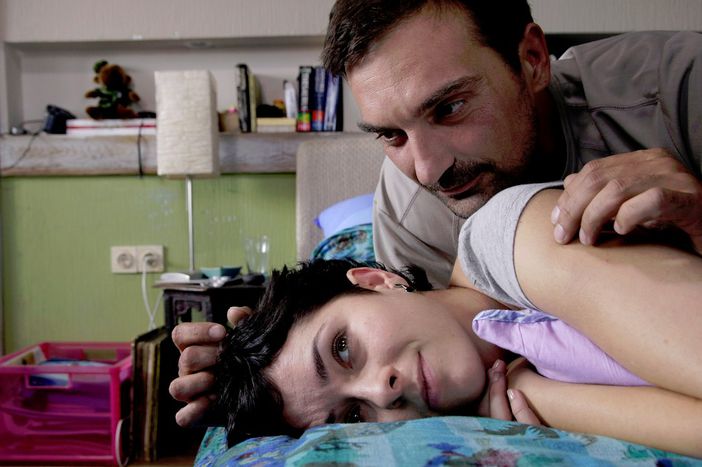
Bosnia-Herzegovina cinema: Jasmila Zbanic's 'On the Path'
Published on
Translation by:
Annie RutherfordFour years ago the Bosnian director unexpectedly won the golden bear at the Berlin international film festival with her debut film. Her new work 'Na Putu' also has controversial potential, handling themes of islamism and a couple's alienation in modern-day Sarajevo
On the surface Luna (Zrinka Cvitesic) and Amar (Leon Lucev) are your average thirtysomething couple living in present-day Sarajevo. She works as an air hostess, he's an air-traffic controller. They are happy together, wanting only a child. However, Amar's excessive lifestyle doesn't make this easier. The former soldier feels most comfortable with his old buddies and tries to drown his invisible war wounds at the bottom of a bottle. After being caught drinking on shift one day he is suspended from work. By chance he meets an old army mate Bahrija (Ermin Bravo) who offers him a job at a summer camp for the Wahhabi, a strong Muslim sect. Despite Luna's misgivings, Amar takes the job. When he returns he has changed. Whilst he has managed at least to stop drinking, he's now searching for healing in a strictly conservative interpretation of the Koran. He even attempts to convince Luna of the rightness of his new, old truths. Over 100 minutes, the two distance themselves from one another.
35-year-old Bosnian director Jasmila Zbanic tells of a couple's alienation in her contemporary film On the Path. The political dimensions of the story are only secondary. 'There are two people who love one another and one of the two becomes radical, it doesn't matter in what way. In the 1980s I maybe would have made Amar into a radical communist. I was interested in changes in the inside of a person in this film. Islam is more of a metaphor there,' she says.
'In the 1980s I maybe would have made Amar into a radical communist'
Yet with the backdrop of real developments in Bosnia and Herzegovina in particular, where islam is becoming more and more influential, it is this aspect which makes the film so fascinating. Zbanic shows precise insights into the life of the Wahhabi. 'The film prompted debates in Bosnia which had never been talked about before,' according to Zbanic. 'This radicalism used to only be portrayed in black and white. These people weren't viewed as people, no one tried to enter into a dialogue with them. There was only ever propaganda against them but no one tried to find out why they became the way they did.'
Zbanic's film is not a political one. The focus is on the story of the two lovers who slowly move away from one another. This is made poignantly comprehensible by a wonderful cast, with Croatian male and female leads. Using quiet, atmospheric pictures the director keeps the focus on her characters and at the same time shows that life in Sarajevo doesn't differ fundamentally from that of other European towns. Maybe this film isn't quite the huge success of Grbavica: The Land of my Dreams, but it is moving in a subtle, quiet way and will also prompt debates in Germany.
Na Putu ('On The Path'), Bosnia-Herzegovina/Austria/Germany 2010, director Jasmila Zbanic, actors Zrinka Cvitesic, Leon Lucev, Ermin Bravo
The author of this review, Ingrid Beerbaum, is a member of the correspondent network n-ost
Translated from Kino aus Bosnien-Herzegowina: "Na Putu - Zwischen uns das Paradies" von Jasmila Zbanic



